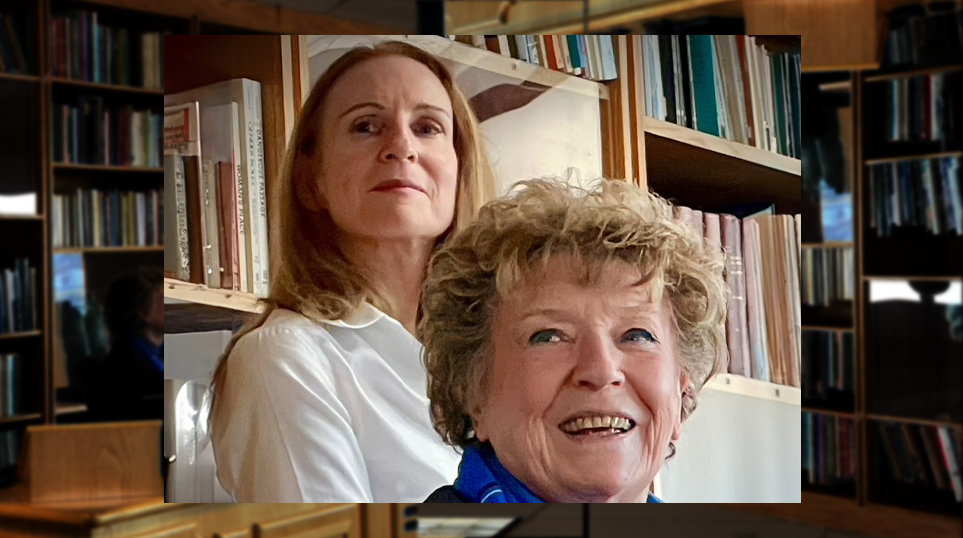Dacia Maraini in Conversation with Cristina Gragnani
Acclaimed Italian author and activist Dacia Maraini sat with Dr. Cristina Gragnani for a conversation on her latest book, Vita mia, a memoir based on her childhood experiences as a prisoner in a Japanese internment camp during World War II (1943-1945). The event occurred on November 7th, 2023, at 2:00 pm in our Women’s Studies Lounge (Mazur Hall 821). The room was full of students, colleagues and members of the Philadelphia Community.
In 1939, Dacia’s father, anthropologist Fosco Maraini, relocated his family to Japan. Dissatisfied with Italy’s fascist regime, he’d accepted a scholarship from the Japanese government to study the Ainu people. Dacia was just two years old. While in Japan, the Maraini family expanded with the birth of two more daughters, and they became fully integrated into the culture.
Maraini told us about when, in 1939, in response to his dissatisfaction with the fascist regime, Dacia’s father, anthropologist Fosco Maraini, accepted a scholarship from the Japanese government to study the Ainu people. When they relocated, Dacia was just two years old. The Maraini family expanded with the birth of two more daughters in Japan, and they became fully integrated into the culture.
In 1943, the authorities questioned Dacia’s parents separately. Maintaining their antiracist and anti-fascist stances, they each refused to acknowledge the recently established Republic of Salò, which was allied with Japan. The couple, accused of treason, was interned in a camp with their young daughters. This event marked the beginning of Maraini's most harrowing years, characterized by hunger, cold, illness, and fear. Dacia recalled feeling surprised every night to be still alive. She was only seven years old.
Maraini generously shared her painful story with us and openly discussed how she approached writing about such traumatic memories. The audience engaged with Maraini and her ideas on memory and testimony, trauma, power dynamics, freedom and captivity.
Hearing from such an incredible intellectual with so much life experience was an honor. Listening to her speak about her story and commenting on her latest project was remarkable. Personally, this was the first time I’ve had the opportunity to talk directly to someone who had survived a concentration camp during WWII. It was a remarkably humbling and touching experience; I am lucky to have even briefly met with such an inspiring woman. - Sam Cashion, Italian Minor
Our guest
Author of fiction, poetry, theatre, and non-fiction, Maraini has received many national and international prizes. Her award-winning plays are staged all over the world. In the 1970s, she founded the first all-female theatre in Italy. Her works often focus on themes of social justice and the human condition. Strong-viewed, outspoken and free, Maraini’s works and contributions to the public debate have often sparked controversy. Known in Italy and abroad as “a controversial voice in a culture of silence” (The Independent), she has never stopped fighting against all forms of dogmatism and conformism. She has always battled to promote women’s awareness of their right to self-determination and freedom. Raising awareness of the causes of violence against women and children (and, more broadly, on all types of abuse) has been one of her primary missions as a writer and activist.
We want to thank all who made this event possible. Below is a list of co-sponsors and supporters
Co-sponsored by Asian and Middle Eastern Languages and Studies, the English department, the Gender Sexuality Women Studies Program, the Global Studies Program, the Intellectual Heritage Program, the Spanish department, the Center for the Study of Force and Diplomacy, the Education Abroad Office, Temple University Global Initiatives, Temple University Rome Campus, Temple University Italian Club and the America Italy Society. A special thanks goes to the Center for the Humanities at Temple (CHAT) for supporting this event.

